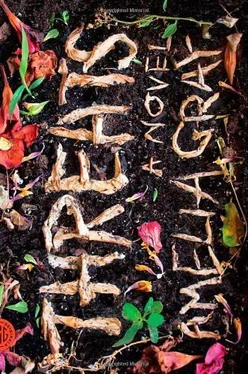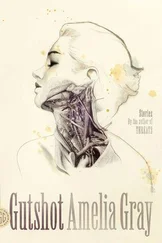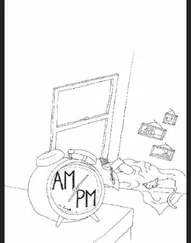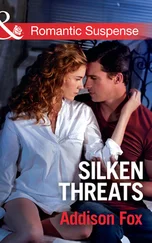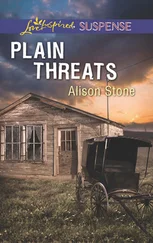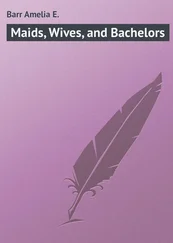“We have a high standard of moral conduct around here,” the boy said. “The ladies and gentlemen of this office are charged with upholding the law, as I’m sure you’re aware. Nobody is going to knowingly come into this office and eat sugar cereal that doesn’t belong to them.” He had picked up his clipboard again.
Shelly patted the chair next to her and he frowned but clambered up again, grasping the chair’s back rail and turning to sit beside her.
She put her arm around his shoulders and hugged him to her. “It doesn’t really matter where the sugar cereal is, does it?”
“Sure it does. If someone hid it, finding where it’s hidden will help me know who did it. If someone ate it, there will be evidence, and I’ll find it, and then something can be done. I should check the wastebins.” He scanned the items on his clipboard list and started to slide off the chair when Shelly tightened the grip on his shoulder.
“But if you think about it,” she said, “it doesn’t really matter.”
The boy was silent, staring at his clipboard.
Shelly released his shoulder and circled another word, “fence.” “Remember what we learned about what happens to the cereal, and the candy in the cereal, and all of us?” she asked.
The boy used his careful handwriting to write “leaves” on the page, and then crossed it out just as carefully. “It’s out there somewhere,” he said to the page.
“That’s right,” Shelly said. “Now it’s time to go and have some dinner.”
She stood and hefted him off the chair and onto his feet. He unlocked the receptionist’s desk drawer and put the clipboard inside. The key to the desk was on its own ring, which he attached to a lanyard around his neck and tucked under his shirt. The key was cold on his stomach, then it was warm, and then he couldn’t feel it at all. He followed his aunt out of the office.
THE LAUNDRY BASKET had been too awkward to carry up the hill. Shelly left it at the bus stop and bundled the clothes in a towel to haul on her back. She did not look at the address written on her hand, because she had heard it would be the only house on the street with boarded windows. She walked to the garage and knocked on the open door.
“Knock-knock,” Shelly said.
A woman raised her hand from her desk. “The detective said you’d stop by,” she said. “Let me move my papers.”
“Don’t go to any trouble for me,” Shelly said, widening the door with her shoulder. She entered the room and laid her bundle on a chair in front of the desk. Wasps swarmed and dotted the towel.
The woman was gathering folders from where they lay scattered atop an old white-lacquered washing machine. “Don’t mind them,” she said.
The wasps were chaining themselves together to form a necklace around Shelly’s neck. She resisted the urge to lift her hand. “I thought a change of scenery was in order,” Shelly said.
The other woman lifted folders to her chest and hefted them off the washer. She spread the papers out on the countertop and sifted through them. “I need to organize my life,” she said.
“Thank you for making room,” Shelly said. She waved her hands over the towel, and the wasps took flight. Her living necklace dissipated. One landed on her hand and made a delicate path toward her fingertips. Shelly stood quietly and allowed the movement, which felt like a caress over the tiny hairs along her mid-digits.
The woman was watching. “Wasps don’t have hairs on their legs that capture pollen like bees do. They used to eat meat.”
The wasp walked across Shelly’s fingertips. She brought her hand closer to her face to see the tiny claws at the ends of the wasp’s feet. “There’s nothing wrong with you,” she said to the wasp.
“They still have the bodies of predators.”
Shelly moved her hand with the wasp toward the washing machine, reaching into her pocket for a quarter with the other. She placed the quarter next to the insect, holding her wasp hand level. The wasp regarded the quarter and touched it with a quivering mandible, then released Shelly’s hand and headed for the roof. Shelly put the quarter down and picked up the laundry. “Thank you for making room for me,” she said to the ceiling. The room’s rafters swelled with movement.
“No problem. It’s nice to have company,” the woman said, unwrapping a stick of gum. She had stacked her folders and opened a book at her desk, though it was clear she wasn’t reading it. She put the gum in her mouth and moved her fingers across the page as if the words were printed on ridges. “Do you know about ‘you’?” she asked.
Shelly thought about it. “About as much as could be expected,” she said. “I wouldn’t say I know the whole depth and breadth.”
“More devastation has been linked to ‘you’ than anything else. The research is conclusive. I’ve researched the full canon. Since it was ‘thou.’ We’re talking over six hundred years of devastation. Heartbreak. Accusation. And worst, worst? False promise.” She leaned back in her chair and tapped a stack of books rising up from the floor, reaching above her elbow. “A lifetime of plans, dissolved. Each of them linked to ‘you.’ Tied there in the history of the world.”
Shelly balanced the clothes on her hip. “If it wasn’t me, it would be you.”
“It is ‘you.’” The woman worked her gum like a cud. “Can you imagine the history of the world without ‘you’?”
“I appreciate you saying that,” Shelly said, opening the washer lid. She ran her hand around the interior of the machine to pull out the forgotten tissues. At the bottom of the tub, she touched a ribbon, satin against her hand. The ribbon was stuck partially under the lower rim of the agitator. She tugged at it and worked her hand under the plastic rim. It had gone through a cycle or two and was wrapped around the agitator. Leaving it there would immobilize the agitator, leading to a highly imperfect wash. Shelly pushed the agitator to one side and pulled on the ribbon in the opposite direction. She felt the ribbon sliding and tearing against the plastic piece, and then it was free, and her hand came back holding the ribbon looped around two gold wedding bands and knotted tight. She held the rings close to her eye. The ribbon was pale pink and lined with stitched eyelets. It looked like the kind of ribbon that would be woven through a baby’s bonnet. She put one of the rings between her teeth and made an impression in the gold.
“What is it?” Marie asked.
Shelly held the rings up. “History of the world,” she said.
DAVID’S MOTHER fumbled with the foil crimping over the carton of juice. She tried to pinch it between her thumb and forefinger, but the thin tab of foil and her blindness worked together to elude her. She scratched at the foil-crimped lid, as if to puncture it, but succeeded only in flattening some of the minor perforations of metal, bowing it in. David reached for her hands to help but she pulled them back, protecting the juice with her forearm. The attendant standing at the corner of the room already knew not to go to the trouble of an advance and assist.
“There was a court case in one of the southern states years ago,” she said, “twenty years ago. The only witness to the act in question was a five-year-old child, a boy. Without question he had witnessed the act. His mother’s lawyer led him to the stand, and the judge asked the boy what color the lawyer’s tie was. The boy said it was blue, and the judge said, no, that tie is red. The boy was confused and said it was blue and the judge said that the tie was red and the boy was very bad if he thought it was blue.”
“What color was the tie?”
Читать дальше
